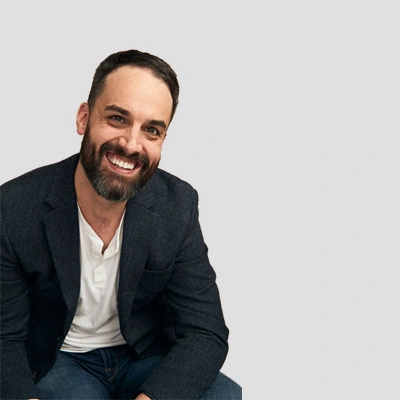View Interview
 Hot Seat
Hot Seat

Matt Burns is the Co-Founder & CEO of atlas copilot, the world's first AI knowledge copilot for people leaders. Atlas Copilot's mission is to fundamentally transform the way HR professionals, teams and other people leaders do their work. And increases the value they can offer by empowering them with the latest in generative AI technology.
As a former HR executive, strategy consultant and industry analyst, Matt brings a wealth of practical experiences that help organizations adapt, transform and otherwise realize continuous improvement. His track record speaks for itself; leading a talented global team that won the coveted “Most Innovative Use of HR Technology” in 2017 and the "Canadian HR Team of the Year" award in 2018.
As the host of the "AI HR" podcast, presented by Hacking HR, Matt explores the intersection of Artificial Intelligence and Human Resources, while discussing broader AI topics that impact business, technology and society.
HR plays a vital role in cultivating these traits by fostering experiential learning, mentorship, and coaching that push leaders to think differently. Creating psychological safety empowers leaders to take bold risks, experiment, and drive change.
Leveraging AI-driven analytics, HR can identify leadership gaps and tailor development, ensuring programs translate into real impact. Most importantly, HR must model these same qualities—being proactive, human-centered, and forward-thinking—to support leaders and the organization in achieving sustainable success.
AI provides real-time insights, from sentiment analysis to predictive leadership analytics, helping leaders make better decisions. AI-powered coaching tools also offer just-in-time nudges to strengthen key skills like emotional intelligence and strategic thinking.
HR must ensure AI enhances, rather than replaces, human-centric leadership. While AI can optimize learning, great leadership still relies on trust, inspiration, and human connection. The key is integrating AI as an enabler-amplifying leadership potential while reinforcing the values and culture that define successful leaders.
I've seen that the most effective leaders simplify without oversimplifying. They provide clarity amid uncertainty, ensuring teams stay focused on impact rather than getting lost in ambiguity. This lesson has shaped how I approach leadership, strategy, and change.
For HR, this means creating frameworks that help leaders navigate uncertainty while empowering them to act decisively. It's not about having all the answers but fostering a culture where adaptability, critical thinking, and collaboration enable organizations to thrive in an ever-changing landscape.
AI enables HR to tailor development paths based on individual skills, aspirations, and business needs, ensuring employees see a clear future within the organization. Dynamic, AI-driven learning platforms and career mobility programs help top talent stay engaged and continuously upskill.
Equally important is recognition that goes beyond compensation. AI can analyze performance data to ensure timely, meaningful recognition aligned with contributions—whether through peer-driven rewards, personalized incentives, or opportunities for greater impact. By combining AI's precision with a human-centered approach, HR can create a workplace where employees feel valued, empowered, and motivated to stay.
To maintain human connection, HR must be intentional about when and how technology is used. AI can personalize employee experiences, but critical moments—career conversations, conflict resolution, and major transitions—require human empathy.
The key is a tech-enabled, human-led approach. HR should leverage AI for efficiency while ensuring leaders remain accessible, engaged, and emotionally intelligent. When done right, automation strengthens—not weakens—the human touch, allowing HR to be both data-driven and deeply connected to people.
The platform consolidates various HR activities into a unified interface, reducing redundancy and enhancing collaboration, which boosts operational efficiency. Additionally, it offers personalized experiences and real-time connections, empowering employees with self-service tools and tailored content to increase productivity and engagement.
1. Clarity – In times of rapid change, teams need a clear purpose and aligned priorities. HR should ensure leaders communicate transparently, providing direction without rigidity.
2. Continuous Learning – Agile teams thrive when learning is constant. AI-driven insights can personalize development, ensuring employees upskill in real time to meet evolving business needs.
3. Empowerment – Foster a culture where teams have the autonomy to experiment, make decisions, and iterate quickly. Psychological safety is key—people must feel safe to take risks, learn from failure, and innovate.
By combining these elements, HR can build resilient, high-performing teams that navigate change with confidence.
